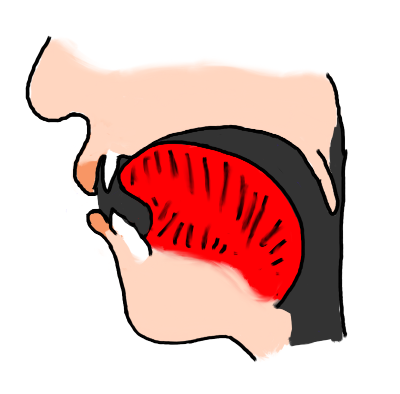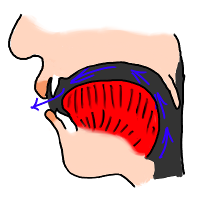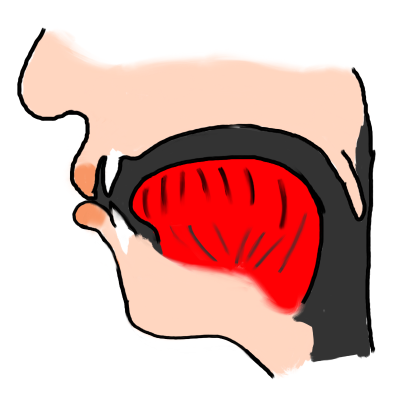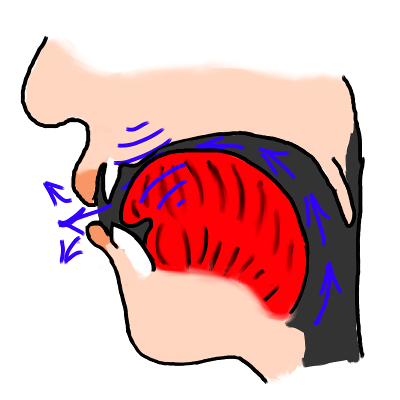How to pronounce biscuit
Do you find the information below useful? If you do, you can get guides like it for 1,000+ French words by downloading this app for your iPhone or iPad.
| l |  | The French 'l' is similar to the 'l' in English "with Lee". The tongue tip usually touches the back of the upper teeth. It is also a so-called "clear" l: in other words, you don't raise the back of your tongue as you pronounce the French 'l', as occurs in some cases in English. | |
| ə |  | The 'schwa' or 'neutral e' is pronounced with the tongue in a "central, relaxed" position and the mouth also in a 'half open, relaxed' position. Note that many French speakers actually tend to pronounce this vowel as a 'close eu' vowel (as occurs at the end of words ending in -euse), or at least with some rounding of the lips. | |
| b |  | As with French 'd' and 'g', when you pronounce a French 'b', try to make your vocal cords vibrate all the time your lips are closed (but without the air escaping through your nose as in an 'm' sound). Try to "force some extra air" towards your closed mouth, but without it coming out through your nose. This can take some practice for English speakers! | |
| i |  | The French 'i' vowel is pronounced with the tongue almost as far forward and close to the roof of the mouth as it will go and with the lips spread. Aim to "tense" your lips for a moment as you pronounce it. | |
| s |  | A French 's' sound is made in a very similar way to an English 's' sound, by bringing the front part of the tongue very close to the ridge behind the teeth, causing friction as the air escapes. However, many English speakers use the very tip of the tongue, whereas in French it is common to use the part of the tongue just behind the tip (called the "blade" of the tongue). | |
| k |  | A French 'k' sound (often written "qu" or, as in English, "c") is generally pronounced in a similar way to the English 'k' sound of "skin", "scan" etc. In other words, it is not usually followed by a "strong burst of air" (aspiration) as in the 'k' sound of English "kit", "can" etc. If you are a native English speaker, repeat the word "cool" then "school" while holding your hand in front of your mouth. In the word "cool", you'll feel a stronger burst of air than in "school". In French, you always pronounce the 'k' sound as in English "school", without the strong burst of air. | |
| ɥ |  | This is a sound that has no near equivalent in English. To pronounce it, you "glide" rapidly from a French 'u' vowel to the following vowel. Be careful not to pronounce this sound as an English "w" sound. The two are different: in this French sound, you start on a French 'u' sound (and not a French 'ou' sound or English 'oo' sound). | |
| i |  | The French 'i' vowel is pronounced with the tongue almost as far forward and close to the roof of the mouth as it will go and with the lips spread. Aim to "tense" your lips for a moment as you pronounce it. |